Premium courses offered by Wray Castle Ltd are designed for professionals seeking advanced knowledge and skills in telecommunications and technology. These courses are tailored to provide in-depth, specialized training in specific areas such as 5G, LTE, IP, radio engineering, network virtualization, and critical communications like TETRA and PMR.
With a focus on delivering high-quality, industry-relevant content, premium courses are ideal for individuals looking to enhance their expertise and advance their careers in the rapidly evolving field of telecommunications. These courses are developed by industry experts with years of experience, ensuring that learners receive the most up-to-date and relevant information.
By enrolling in a premium course, participants can expect to gain a deep understanding of complex topics, explore advanced concepts, and develop practical skills that can be applied in real-world scenarios. The courses are delivered through a combination of live sessions, self-paced modules, interactive labs, and case studies, allowing learners to engage with the material in a variety of ways.
One of the key benefits of premium courses is the personalized support and guidance provided by experienced tutors. Learners have the opportunity to ask questions, seek clarification, and receive feedback on their progress, ensuring that they are able to fully grasp the material and apply it effectively in their work.
Upon successful completion of a premium course, participants will receive a digital badge certifying their achievement. This recognition can enhance their professional profile, demonstrate their expertise to employers, and open up new opportunities for career advancement.
Overall, premium courses offered by Wray Castle Ltd are a valuable investment for professionals looking to stay ahead in the fast-paced world of telecommunications and technology. With access to cutting-edge content, expert guidance, and industry recognition, learners can take their skills to the next level and achieve their career goals.
Premium Courses
-
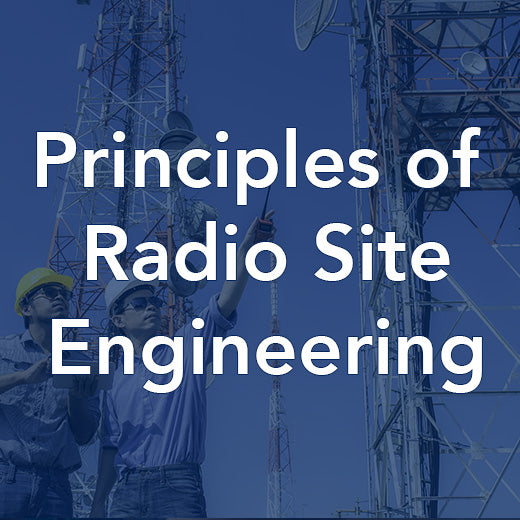
Principles of Radio Site Engineering
Our Principles of Radio Site Engineering training course is designed for individuals involved in radio site acquisition, planning, and build within the cellular industry who may not have a strong radio background. This comprehensive course covers essential radio theory and practical considerations for site build, making it ideal for those seeking an overview of telecoms transceiver equipment siting in radio sites. No prior knowledge of radio principles is required, although a technical background or the ability to comprehend technical information is advantageous. Led by expert trainer Les Granfield, who brings over 35 years of experience in the telecommunications industry, participants will delve into key topic areas such as radio wave propagation, antenna theory, cell site selection, indoor coverage challenges, radio systems interference, and more. With a focus on practical applications and real-world scenarios, this 2-day course consisting of 4 live online sessions (0900-1230) provides a valuable learning experience for professionals looking to enhance their understanding of radio site engineering principles and practices. Who would benefit Those requiring an overview of what is involved in the siting of telecoms transceiver equipment in radio sites. Prerequisites No prior knowledge of radio principles is required. A technical background or the ability to comprehend technical information is advantageous. Topic Areas Include Radio theory Radio wave propagation Antenna theory Considerations for siting antennas Transmission lines Considerations for installing transmission lines Cell dimensioning Cell site selection and positioning Indoor coverage challenges Indoor coverage using repeaters Indoor coverage using base stations Antenna systems for indoor coverage Radio systems interference Multi-site configurationsEarthing UK planning issues Trainer: Les Granfield Les is a technical trainer with 35 years of experience. His expertise extends across a wide range of telecommunications technologies. He specializes in GSM, GSM-R, ERTMS/ETCS, UMTS, LTE and 5G radio access networks, radio planning, radio access network optimization and Push to Talk over Cellular (PoC).
POA: Private Course
-
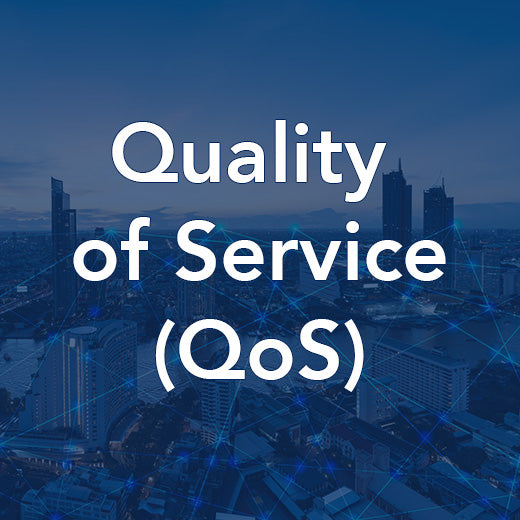
Quality of Service (QoS)
Telecommunication networks have evolved to offer a rich mix of multimedia and voice services. Many such services depend on the Internet Protocol (IP) for their operation and networks need to be equipped and engineered to cope with changed and changing requirements. The Quality of Service (QoS) offered to users is a vital aspect of IP network engineering and is pertinent to all IP network types. This detailed Wray Castle course provides network engineers with an in-depth study that covers all the principal aspects of IP QoS in part through theory but also by means of at least 9 practical exercises. The practical exercises will take the delegates through queue management techniques associated with switches and then routers. These exercises will include looking at QoS markings and then look at priority queueing, custom queueing, fair and weighted queueing as well as class-based routing. Exercises also cover RSVP and traffic shaping. In order to aid the exercises a set of pods will be used where each pod consists of 3 routers and 2 switches all the ancillary cables and a laptop will be provided although it is recommended that delegates bring their own laptop to aid with testing and so that they can take example traces away with them for further study after the course. Who would benefit This course has been designed for those needing an understanding of the QoS engineering approaches available in IP networks. It will benefit engineers involved in network planning, commissioning, network optimization, strategy determination, deployment, equipment design or manufacturing of network equipment. Some will find that this course will satisfy their complete requirements, while for others it will provide one element in a wider study based on primary material and other related Wray Castle courses. This course is also very useful for engineers and scientists working in areas related to IP network operation. This includes those working within service delivery, service developers, billing, Government security or forensic work, technical support staff and those in technical management roles. Prerequisites A thorough foundation in the practices of IP routing would be highly beneficial before attending this course. Topic Areas Include QoS Principles Packet Filtering for QoS QoS approaches in IP Networks IntServ DiffServ Queue Management Router QoS Markings Priority Queueing Custom Queueing Fair Queueing Weighted Fair Queueing Class-based Routing Traffic Shaping
POA: Private Course
-
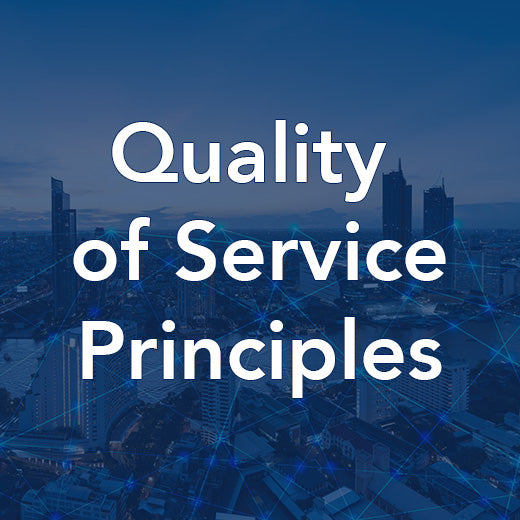
Quality of Service Principles
This 1-day Quality of Service Principles training course offered by Wray Castle provides a comprehensive overview of QoS in converged telecommunications networks. Participants will delve into the intricacies of QoS in ATM, MPLS, Ethernet, and IP networks, as well as explore the mechanisms used in VoIP and IPTV. This fast-paced course is ideal for engineers involved in planning, designing, implementing, supporting, and managing services over modern IP networks who need a solid understanding of QoS mechanisms. The course covers a range of topic areas including Traffic Management, IntServ and DiffServ Operation, Queue Management, Speech Quality, Video/Audio Quality, IP over ATM QoS, QoS in MPLS Networks, Ethernet Switch QoS Fundamentals, and Backhaul Traffic Profile. Participants are required to have a good understanding of IP networks, which can be obtained by attending Wray Castle's 'Routing Protocol Principles – IP1306' and 'Multi Protocol Label Switching – IP1307' courses. Enhance your knowledge and skills in QoS principles with this insightful training course. Improve your expertise in Quality of Service principles with Wray Castle's 1-day training course. Gain valuable insights into QoS mechanisms in converged telecommunications networks, including ATM, MPLS, Ethernet, and IP networks, as well as VoIP and IPTV. This course is designed for engineers involved in various aspects of modern IP networks who need to grasp the essentials of QoS. Explore topics such as Traffic Management, IntServ and DiffServ Operation, Queue Management, Speech Quality, Video/Audio Quality, IP over ATM QoS, QoS in MPLS Networks, Ethernet Switch QoS Fundamentals, and Backhaul Traffic Profile. Prior knowledge of IP networks is recommended, which can be acquired through attending Wray Castle's related courses. Elevate your skills and understanding of QoS principles with this informative training opportunity. Who would benefit All engineers involved in planning, designing, implementing, supporting and managing services over modern IP networks and need to understand the QoS mechanisms at their disposal. Prerequisites A good understanding of IP networks which can be obtained by attending our Wray Castle courses ‘Routing Protocol Principles – IP1306’ and our ‘Multi Protocol Label Switching – IP1307’. Topic Areas Include What is QoS? Traffic Management IntServ and DiffServ Operation Queue Management Speech Quality Video/Audio Quality IP over ATM QoS QoS in MPLS Networks Ethernet Switch QoS Fundamentals Backhaul Traffic Profile
POA: Private Course
-
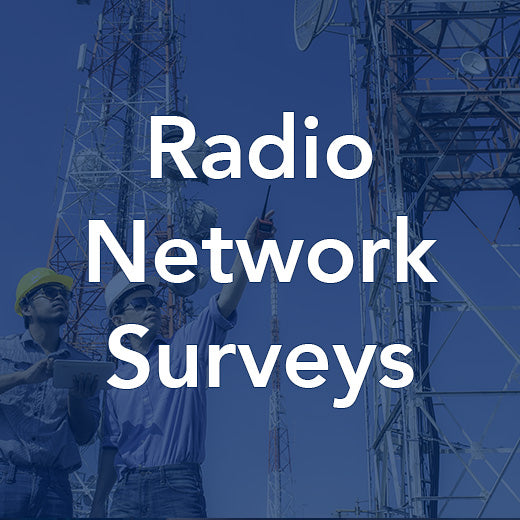
Radio Network Surveys
To carry out meaningful radio surveys of GSM, UMTS, LTE and Wi-Fi networks demands a knowledge of how those networks operate and the key radio metrics. These are discussed in detail along with the types of surveys and information they can reveal. The course is focused on the practical issues of performing surveys backed up with demonstrations. The equipment and software used on this course includes the Rohde & Schwarz TSMA radio scanner, ROMES and NESTOR software as well as the QualiPoc, handheld survey tool. Our Radio Network Surveys Training Course is designed to provide participants with the knowledge and practical skills needed to conduct meaningful surveys of GSM, UMTS, LTE, and Wi-Fi networks. This course covers key radio metrics, types of surveys, and the equipment and software used in conducting surveys, including the Rohde & Schwarz TSMA radio scanner, ROMES and NESTOR software, and the QualiPoc handheld survey tool. Whether you are involved in coverage optimization, crime scene investigation, alibi verification, intelligence gathering, or performance analysis, this course will help you create a comprehensive picture of the cellular radio network environment. Participants will learn about cellular radio principles, spectrum and identities, radio measurements and metrics, cell selection and reselections for GSM, UMTS, and LTE, location reporting in idle mode, mobility in Wi-Fi, connected mode activity for mobile devices, tools for radio surveys, spectrum occupancy, coverage surveys, base station position estimation, and practical guidance for surveying. While previous attendance on GSM, UMTS, LTE, and Wi-Fi courses may be advantageous, it is not essential to benefit from this training. Who would benefit Those that need to create a ‘picture’ of the cellular radio network environment to aid coverage optimization, crime scene investigation, alibi verification, intelligence gathering and performance analysis. This course features the Rohde & Schwarz TSMA radio scanner in conjunction with the ROMES and NESTOR software as well as a drive test tool. Prerequisites Previous attendance on GSM, UMTS, LTE and Wi-Fi courses would be advantageous but not essential. Topic Areas Include Cellular radio principles Cellular radio spectrum and identities Wi-Fi radio spectrum and identities Radio measurements and metrics Cell selection and reselections for GSM, UMTS and LTE Location reporting in idle mode Mobility in Wi-Fi Connected mode activity for mobile devices Tools for radio surveys Spectrum occupancy Coverage surveys Base station position estimation Practical guidance for surveying
POA: Private Course
-

Radio Network Surveys (On-Demand)
To carry out meaningful radio surveys of GSM, UMTS, LTE and Wi-Fi networks demands a knowledge of how those networks operate and the key radio metrics. These are discussed in detail along with the types of surveys and information they can reveal. The course is focused on the practical issues of performing surveys backed up with demonstrations. The equipment and software used on this course includes the Rohde & Schwarz TSMA radio scanner, ROMES and NESTOR software as well as the QualiPoc, handheld survey tool. Our Radio Network Surveys Training Course is designed to provide participants with the knowledge and practical skills needed to conduct meaningful surveys of GSM, UMTS, LTE, and Wi-Fi networks. This course covers key radio metrics, types of surveys, and the equipment and software used in conducting surveys, including the Rohde & Schwarz TSMA radio scanner, ROMES and NESTOR software, and the QualiPoc handheld survey tool. Whether you are involved in coverage optimization, crime scene investigation, alibi verification, intelligence gathering, or performance analysis, this course will help you create a comprehensive picture of the cellular radio network environment. Participants will learn about cellular radio principles, spectrum and identities, radio measurements and metrics, cell selection and reselections for GSM, UMTS, and LTE, location reporting in idle mode, mobility in Wi-Fi, connected mode activity for mobile devices, tools for radio surveys, spectrum occupancy, coverage surveys, base station position estimation, and practical guidance for surveying. While previous attendance on GSM, UMTS, LTE, and Wi-Fi courses may be advantageous, it is not essential to benefit from this training. Who would benefit Those that need to create a ‘picture’ of the cellular radio network environment to aid coverage optimization, crime scene investigation, alibi verification, intelligence gathering and performance analysis. This course features the Rohde & Schwarz TSMA radio scanner in conjunction with the ROMES and NESTOR software as well as a drive test tool. Prerequisites Previous attendance on GSM, UMTS, LTE and Wi-Fi courses would be advantageous but not essential. Topic Areas Include: Cellular radio principles Cellular radio spectrum and identities Wi-Fi radio spectrum and identities Radio measurements and metrics Cell selection and reselections for GSM, UMTS and LTE Location reporting in idle mode Mobility in Wi-Fi Connected mode activity for mobile devices Tools for radio surveys Spectrum occupancy Coverage surveys Base station position estimation Practical guidance for surveying
£1,815.00
-
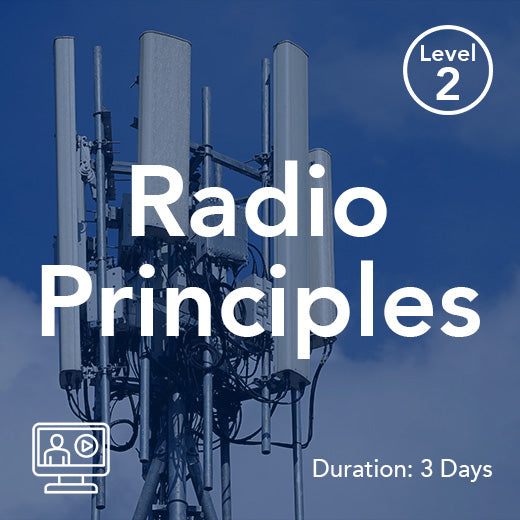
Radio Principles
The definitive course in Radio Communications The world has seen a phenomenal growth in the application and use of radio technology. What haven’t changed, however, are the principles upon which all of these technologies are built. The Radio Principles course provides an in-depth understanding of these principles on which radio technologies are built, taking students on a logical and detailed path through the various aspects of the theory, and practice, of radio communications. Through attendance on this course, delegates will build an understanding of how radio works and how this impacts manufacturers, users and operators of radio technology. Our Radio Principles training course is designed to provide a comprehensive understanding of radio principles and technologies. Whether you are new to the field or looking to enhance your existing knowledge, this course covers all the essential topics including modulation techniques, transmission lines, antennas, and more. Our expert instructors will guide you through the fundamentals of radio communication, helping you gain the skills and confidence needed to excel in this dynamic industry. By enrolling in our Radio Principles training course, you will have the opportunity to learn from industry professionals with years of experience in the field. Our interactive sessions and hands-on exercises will give you practical insights into the latest advancements in radio technology, helping you stay ahead of the curve. Whether you are a beginner or an experienced professional, this course will provide you with the knowledge and skills needed to succeed in the fast-paced world of radio communication. Who would benefit Those requiring an understanding of the principles and concepts of radio that underpin today’s radio technologies. Prerequisites Some experience in telecommunications engineering is beneficial but the course is also suitable for delegates with an aptitude for technical subjects. Topic Areas Include The use and management of the radio spectrum Waveform fundamentals and baseband information Power levels and measurementsAnalogue and digital modulation techniques Simplex, semi-duplex and duplex - FDD and TDD Multiplexing – FDMA, TDMA, CDMA and OFDMA Transmitters and receivers Antennas and transmission lines Radio propagation mechanisms Introduction to coverage prediction Principles of cellular coverage techniques Diversity and MIMO An overview of fixed and mobile radio technologies in use today
£2,660.00
-
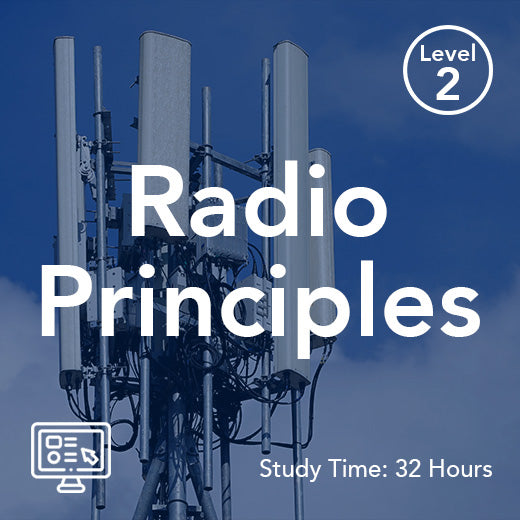
Radio Principles (On-Demand)
The world has seen a phenomenal growth in the application and use of radio technology. What haven’t changed, however, are the principles upon which all of these technologies are built.The Radio Principles course provides an in-depth understanding of these principles on which radio technologies are built, taking students on a logical and detailed path through the various aspects of the theory, and practice, of radio communications. Through attendance on this course, delegates will build an understanding of how radio works and how this impacts manufacturers, users and operators of radio technology. Who would benefit Those requiring an understanding of the principles and concepts of radio that underpin today’s radio technologies. Prerequisites Some experience in telecommunications engineering is beneficial but the course is also suitable for delegates with an aptitude for technical subjects. Topic Areas Include The use and management of the radio spectrum Waveform fundamentals and baseband information Power levels and measurementsAnalogue and digital modulation techniques Simplex, semi-duplex and duplex - FDD and TDD Multiplexing – FDMA, TDMA, CDMA and OFDMA Transmitters and receivers Antennas and transmission lines Radio propagation mechanisms Introduction to coverage prediction Principles of cellular coverage techniques Diversity and MIMO An overview of fixed and mobile radio technologies in use today
£2,660.00
-

Radio Spectrum
Our Radio Spectrum Training Course is designed to provide participants with a comprehensive understanding of spectrum management and the technical characteristics of radio propagation. Over the course of 2 day participants will delve into topics such as the socio-economic benefits of spectrum, the role of ITU-R in spectrum management, and the driving forces behind the demand for spectrum. In addition to exploring mobile communication technologies and other spectrum users, participants will learn how different administrations are addressing the 'capacity crunch' and determining spectral requirements for IMT. This course is ideal for professionals in the telecommunications industry looking to enhance their knowledge of radio spectrum and stay current with the latest developments in spectrum management. By enrolling in our Radio Spectrum Training Course, participants will gain valuable insights into the complexities of spectrum management and the challenges facing the telecommunications industry. With a focus on practical applications and real-world examples, this course will equip participants with the knowledge and skills needed to navigate the evolving landscape of radio spectrum and make informed decisions in their professional roles. Course Contents What is Spectrum? Socio-Economic benefits of Spectrum What is Spectrum Management? Introduction to ITU-R Technical Characteristics of Radio Propagation Mobile Communication Technologies What is Driving the Demand for Spectrum? Other Spectrum Users How Other Administrations are Tackling the ‘Capacity Crunch’ Determining Spectral Requirements for IMT
POA: Private Course
-
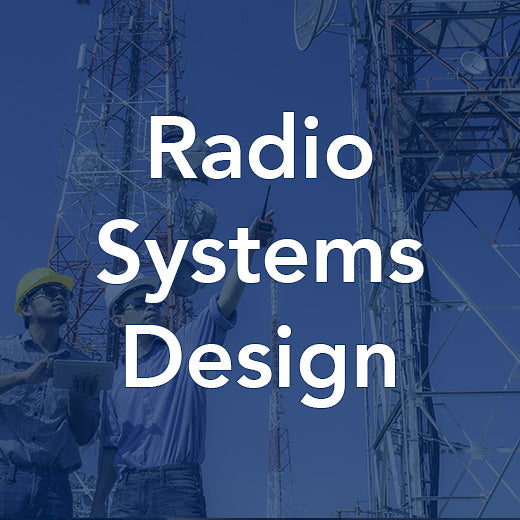
Radio System Design
Course Code: RP1101 Course Summary The course covers the essential information and practical skills needed to begin designing mobile and fixed radio systems. Who would benefit Those involved in the specification, design, planning, management and maintenance of mobile and fixed radio systems. Prerequisites A good knowledge of radio principles, a background in telecommunications engineering, or attendance on the Radio Principles course (RP1301). Topic Areas Include Spectrum regulation – ITU, CEPT, ECC, Ofcom Calculating gain, loss and power levels – the decibel Calculating noise levels in radio systems Interpreting antenna and feeder specifications Radio propagation mechanisms Radio propagation modelling Production of radio path profiles Calculating power budgets Calculating fade margins Diversity systems Planning coverage and capacity for mobile systems Radio site engineering Design a mobile radio system Design a fixed radio link Includes practical exercises throughout, including a system design exercise.
POA: Private Course
-
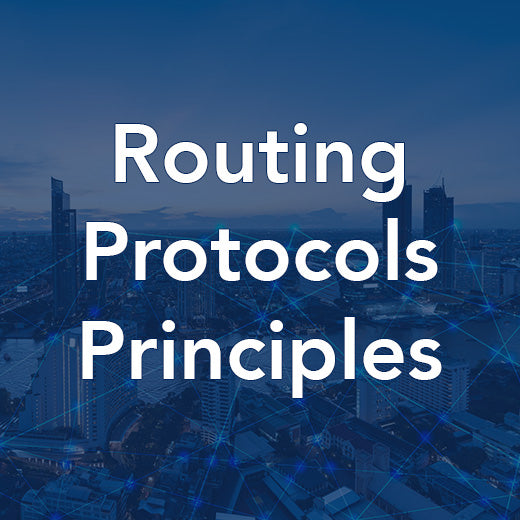
Routing Protocol Principles
In this 2-day online training course, participants will delve into the principles of routing protocols, focusing on Open Shortest Path First (OSPF) and Border Gateway Protocol (BGP). This course, with the code IP1306, is designed to provide a solid foundation in these two key routing protocols essential for network engineers. Ideal for network engineers seeking to enhance their knowledge of link state protocols like OSPF and the Path Vector Algorithm used in BGP, this course is a prerequisite for those considering diving into Multiprotocol Label Switching (MPLS). Participants are required to have a basic understanding of IP and networking, which can be obtained through attending Wray Castle's courses 'Internetworking, Ethernet LANs and VLANs Principles – IP1304' and 'IP Addressing and Internet Protocols Principles – IP1305'. Throughout the training, participants will cover a range of topic areas including the purpose of routing, route table management, routing traffic, interior and exterior gateway protocols, OSPF concepts and configuration, as well as Border Gateway Protocol Version 4 (BGP4) and MPLS VPN operation. By the end of the course, participants will have a comprehensive understanding of these routing protocols and be better equipped to handle complex network configurations. Topic Areas Include The purpose of routing The route table Routing traffic Interior and exterior gateway protocols Routing Information Protocol (RIP) v1 OSPF concepts OSPF configuration Interior (IGP) versus Exterior (EGP) routing Border Gateway Protocol Version 4 (BGP4) MPLS VPN operation
POA: Private Course
-
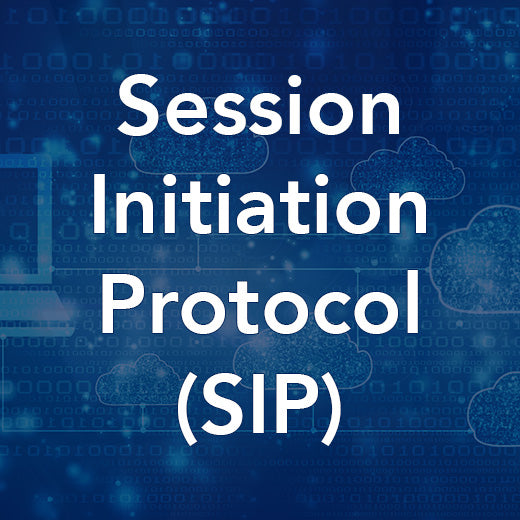
Session Initiation Protocol (SIP)
Our Session Initiation Protocol (SIP) training course offers a comprehensive understanding of SIP, Session Description Protocol (SDP), and Real-time Transport Protocol (RTP) and their crucial roles in establishing multimedia communications over IP-based networks. This 1-day course delves into SIP architectures, various SIP server types, and the intricate functions of SIP, SDP, and RTP in multimedia communication setups. Ideal for individuals seeking an in-depth comprehension of SIP and related protocols, this course covers essential topics such as SIP requests and responses, SIP user agents, dialogues, transactions, SIP architecture, operation procedures, SIP URIs, Tel URIs, and more. Participants will also explore SIP registration and session control, SIP and SDP messages, header fields, routing techniques, SIP server roles (Proxy, Redirect, B2BUA, Forking), SDP offer/answer model, interworking with the PSTN, and practical case studies using Wireshark analysis. Enhance your knowledge of SIP and related protocols with our expert-led training sessions, designed to equip you with the skills and insights needed to navigate the complexities of multimedia communications over IP networks. Join us for this intensive course and gain a competitive edge in the ever-evolving world of telecommunications. Who would benefit Those requiring a detailed understanding of the operation of the SIP and related protocols. Prerequisites A basic understanding of IP, UDP and TCP is an advantage. Topic Areas Include The role of SIP, SDP and RTP in multimedia communications Locating users in a SIP environment SIP requests and responses SIP user agents, dialogues and transactions SIP architecture, operation and procedures SIP URIs and Tel URIs Analysis of SIP registration and session control Analysis of SIP and SDP messages and header fields Request and response routing techniques Route and record route headers The roles and functions of SIP Servers: Proxy, Redirect, B2BUA and Forking SDP offer/answer model SIP-I and interworking with the PSTN Registration and session establishment Case studies using Wireshark analysis
POA: Private Course
-
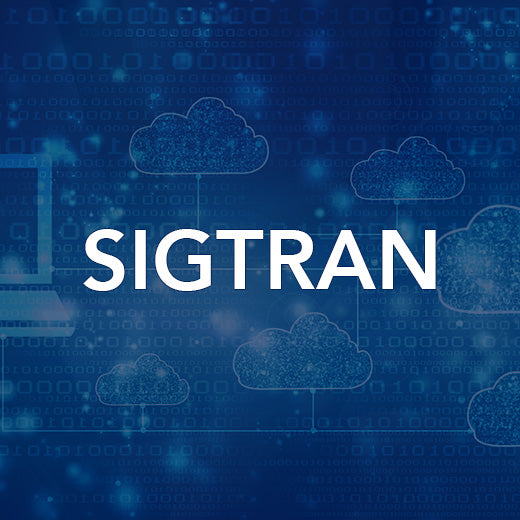
SIGTRAN
The drive towards all-IP networking necessitates the transport of SS7 protocols over an IP domain. This course provides a thorough explanation of how this is achieved using the SIGTRAN ‘toolkit’. Our SIGTRAN training course is designed to provide a comprehensive understanding of how SS7 protocols are transported over IP networks using the SIGTRAN toolkit. As the industry moves towards all-IP networking, this course is essential for individuals who need to grasp the concept of SS7 and the available solutions for transporting SS7 signalling over IP-based networks. Participants will benefit from learning about various topic areas including the importance of SIGTRAN, potential SS7 and IP interworking scenarios, SIGTRAN protocols, SCTP architecture and operation, MTP2 Peer-to-Peer Adaptation (M2PA) layer, MTP3 User Adaptation (M3UA) layer, and more. With a focus on practical applications, attendees will also gain hands-on experience in analyzing SIGTRAN operation using Wireshark. Whether you are a telecommunications professional looking to enhance your skills or a network engineer seeking to understand the complexities of SS7 signalling over IP networks, our SIGTRAN training course is the ideal choice for you. Who would benefit Those requiring an understanding of the need for SS7 and the solutions available for transporting SS7 signalling over IP-based networks. Prerequisites Familiarity with the PSTN architecture and SS7 signalling protocols, particularly MTP and SCCP, together with some knowledge of the TCP/IP protocol suite. Topic Areas Include Why SIGTRAN? Potential SS7 and IP interworking scenarios SIGTRAN protocols SIGTRAN in circuit-related and non-circuit-related signalling scenarios Stream Control Transmission Protocol (SCTP) SCTP architecture, operation, procedures and terminology MTP2 Peer-to-Peer Adaptation (M2PA) layer MTP3 User Adaptation (M3UA) layer MTP2 User Adaptation (M2UA) layer SCCP User Adaptation (SUA) layer Adaptation layer architecture, operations, procedures and resilience models Analysis of SIGTRAN operation using Wireshark
POA: Private Course
-

Single RAN
The advent of technologies such as SDR (Software Defined Radio) and packet-based backhaul have enabled vendors and operators to develop ‘Single RAN’ concepts in which MSR (Multi-Standard Radio) base stations are capable of managing 2G, 3G and even 4G cells from within a single base station unit. Shared IP-based backhaul via an Ethernet packet network further allows for the traditional multi-RAN concept to be abandoned as Single RAN architectures begin to be deployed. This course provides a detailed overview of the Single RAN concept, of the technologies and techniques that enable it and of the architectures and deployment options that have made it a reality. Our Single RAN Training Course is designed for engineers, managers, and other personnel who want to gain a technical understanding of the Single RAN concept and the technologies that enable it. This course covers topics such as defining the Single RAN, potential benefits and dangers of implementation, MSR base stations, software-defined radio, multi-standard band sharing, and more. Participants will also learn about backhaul networks and architectures for Single RAN, multi-RAT operation, flexible core network connectivity, and network area coordination. By taking this course, you will acquire the knowledge and skills needed to understand the Single RAN architecture and deployment options that have made it a reality. Whether you are new to the telecommunications industry or looking to enhance your existing knowledge, this training course will provide you with a comprehensive overview of Single RAN concepts and technologies. Don't miss this opportunity to stay ahead in the rapidly evolving world of telecommunications. Sign up for our Single RAN Training Course today and take your career to the next level. Who would benefit This course is designed for engineers, managers and other personnel who have a need to acquire a technical overview of the Single RAN concept and of the technologies and techniques that enable it. Prerequisites An understanding of 2G, 3G and/or 4G access network architectures and technologies would be an advantage as would a basic knowledge of IP. Topic Areas Include Defining the single RAN Potential benefits and dangers of single RAN implementation MSR base stations Software defined radio Multi-standard band sharing OBSAI and CPRI Localized versus distributed cell sites MSR base Station sharing Potential RF issues Single RAN architecture Backhaul networks and architectures for single RAN Multi-RAT operation Flexible core network connectivity Network area coordination RSFP index and idle mode mobility Connected mode mobility IP flow mobility Multi RAN architecture Single RAN architecture Single RAN implementation example
POA: Private Course
-
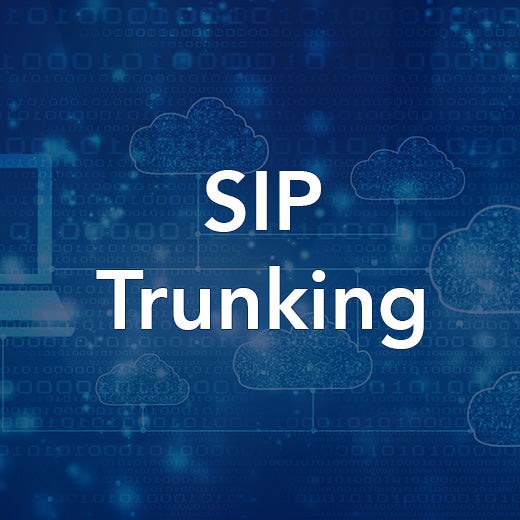
SIP Trunking
This half-day course uses real business cases throughout to discuss the lead up to the employment of SIP Trunking. It includes an overview of carrier scenarios in consideration of all IP infrastructures; a brief look at the standards and a detailed discussion of design considerations, including authentication; transcoding; session management; SIP interworking; pitfalls and security considerations. SIP Trunking is becoming increasingly popular in the telecommunications industry, and understanding its importance and implementation is crucial for engineers and professionals in the field. Wray Castle's half-day training course, with 1 live online session, delves into the intricacies of SIP Trunking through real business cases. From discussing carrier scenarios to exploring technical standards and design considerations, this course provides a comprehensive overview of SIP Trunking. Engineers looking to enhance their knowledge of SIP Trunking and its market forces will benefit greatly from this course. With a focus on SIP Connect standards and design options from a carrier/telco perspective, attendees will gain valuable insights into the drivers behind the growing use of SIP Trunking. While there are no specific prerequisites for this course, a basic understanding of SIP and a keen interest in telecommunications technology are recommended for optimal learning outcomes. Don't miss this opportunity to expand your expertise in SIP Trunking with Wray Castle's specialized training course. Who would benefit This course is for engineers who wish to understand the market forces behind the growing use of SIP Trunking, explained through real-life examples. Attendees should also have an interest in the standard governing SIP Trunking – SIP Connect, as well as the design options available from a carrier/telco’s perspective. Prerequisites Although there are no specific prerequisites for this course, delegates should have a basic understanding of SIP and a keen interest in understanding the drivers behind SIP Trunking. Topic Areas Include Why SIP trunking? Customer scenarios Carrier scenarios Technical Standards Design options
POA: Private Course
-

Small Cells Engineering Overview
This course provides a detailed overview of the technologies and techniques employed by Small Cell deployments. It describes the drivers for small cells in a heterogeneous network and identifies the various interfaces, protocols, security functions and network architectures. The features of Self Organising Networks (SON) are described and small cell backhaul techniques are explored. The course concludes with an overview of the future evolution of small cell technologies. This 2-day Small Cells Engineering Overview training course offered by Wray Castle provides a comprehensive understanding of the technologies and techniques used in Small Cell deployments. The course covers the drivers for small cells in a heterogeneous network, various interfaces, protocols, security functions, and network architectures. Participants will also learn about Self Organising Networks (SON), small cell backhaul techniques, and the future evolution of small cell technologies. Ideal for engineering and technical management professionals seeking a technical overview of protocols, architectures, standards, and configuration considerations related to small cell technologies, this course does not require prior cellular telecoms experience. Topics covered include Mobile Network Generations and Evolution, Small Cell Applications, SON Functions, Small Cell Backhaul Requirements, Security Techniques, and LTE-Advanced Small Cells, among others. Enroll in this live online training course consisting of 4 sessions from 0900-1230 to enhance your knowledge and skills in Small Cell technologies. Stay ahead in the rapidly evolving telecom industry with Wray Castle's expert-led training sessions. Who would benefit This course is suitable for engineering and technical management staff who require a technical overview of the protocols, architectures, standards and configuration considerations related to small cell technologies. Prerequisites Attendance on this course assumes basic cellular telecoms experience but this is not a necessity. Topic Areas Include Mobile Network Generations and Evolution Small Cells Definition The Small Cells Forum Small Cell Applications Associated Technologies and Developments Small Cell Network Architectures Heterogeneous Networks 3G HNB, 4G HeNB Architecture Closed Subscriber Groups Small Cell network architecture, components and interfaces Small cells in the enterprise SON (Self Organizing Networks) Small Cell SON Functions Automatic small cell initialization and configuration Small Cell Backhaul Requirements Wireline and Wireless Backhaul Solutions Broadband-based Backhaul Carrier Ethernet Security, Synchronization, QoS and Reliability Techniques Technology Roadmap for Small Cells LTE-Advanced Small Cells Interworking with Wi-Fi Future developments
POA: Private Course
-

SMS Messaging
SMS messaging is a crucial component of modern communication systems, and understanding its intricacies is essential for anyone working in the telecom industry. Our SMS Messaging course offers a comprehensive overview of SMS technology, its operations, and the challenges it presents. From exploring the SMS ecosystem to delving into message routing and protocols, participants will gain a solid understanding of how SMS messaging functions. One of the key focuses of the course is on the challenges and vulnerabilities associated with SMS messaging, including issues such as spam, fraud, and security threats. Participants will learn effective strategies to mitigate these risks and protect the integrity of SMS communication. By the end of the course, participants will have a strong foundation in SMS messaging and be equipped to navigate the complexities of this technology. Ideal for engineers and staff involved in SMS messaging or systems that utilize messaging for service delivery, as well as those looking to combat fraud, this course is designed to enhance participants' knowledge and skills in the realm of SMS technology. With a focus on practical applications and real-world scenarios, this course is a valuable resource for anyone looking to deepen their understanding of SMS messaging. Who Would Benefit The course is intended for engineers and other staff who are involved with SMS messaging or systems that use messaging to deliver services – or those who need to understand messaging in order to help combat fraud Prerequisites An telecoms background with some general knowledge of cellular networks and services would be an advantage Course Contents Foundation for SMS SMS Operation SMS – Issues, Fraud, and Mitigation
POA: Private Course
-

Softswitching and VoIP
Course Code: IP2001 Course Summary Covering Voice over IP (VoIP) services in fixed and mobile, Next Generation Networks (NGNs) and all IP-based networks, the course also includes VoIP concepts, supporting architectures, interworking with circuit-switched networks together with QoS issues. Who would benefit Those requiring an overview of how voice may be integrated into IP networks. Prerequisites Familiarity with IP and intranet operation is beneficial. This can be obtained from attendance on the TCP/IP (QS2501) course. Topic Areas Include Supporting VoIP in fixed and mobile NGNs Protocols for VoIP Voice quality, quality measurements and quality reports Session Initiation Protocol (SIP) Session Description Protocol (SDP) SIP Peer-to-Peer operation SIP architecture User Agent clients and servers Registrar, Proxy and Redirect Servers Back-to-Back User Agents SIP Requests, Responses and Header analysis Demonstrations with analysis of Registration/Authentication and VoIP session-handling procedures ENUM, NAT, STUN and TURN H.248/Megaco Includes practical demonstrations.
POA: Private Course
-

Software Defined Networking (SDN) (On-Demand)
Our Software Defined Networking (SDN) training course is designed to provide a comprehensive understanding of SDN, including its drivers, architecture, deployment considerations, and case studies. The course covers a range of topics, including SDN drivers for change, evolution and virtualization, SDN goals, SDN architecture, OpenFlow, Netconf and YANG, and more. Participants will gain insights into SDN deployment, network function virtualization (NFV), and SDN in transport networks. A key case study on Google’s G Scale Network will also be explored to provide real-world examples of SDN implementation. Ideal for network, software, and IT engineers, as well as managers and consultants, this course requires delegates to have a basic understanding of IP networking and routing principles. By the end of the training, participants will have a solid foundation in SDN and be equipped to apply their knowledge in practical settings. Who would benefit This course is suitable for those who need a solid base understand of SDN, network virtualisation and the deployment considerations associated with SDN, including network, software and IT engineers, as well as managers and consultants. Prerequisites Delegates should have experience or an understanding of the principles or IP networking and routing. Topic Areas Include SDN Drivers for Change Evolution and Virtualization X as a Service in Layers SDN Goals Introducing SDN Architecture SDN Split Architecture SDN Traffic Engineering Network Functions Virtualization (NFV) and SDN SDN Deployment SDN Architecture SDN Summary SDN Vision Case Study – Google OpenFlow OpenFlow Examples Netconf and YANG SDN to Control Transport Networks Case Study – Mininet
£500.00
-

Software Defined Networking (SDN) Training Course
Our Software Defined Networking (SDN) training course is designed to provide a comprehensive understanding of SDN, including its drivers, architecture, deployment considerations, and case studies. This 1-day course consists of 2 live online sessions, running from 9:00 AM to 12:30 PM, making it convenient for busy professionals to attend. The course covers a range of topics, including SDN drivers for change, evolution and virtualization, SDN goals, SDN architecture, OpenFlow, Netconf and YANG, and more. Participants will gain insights into SDN deployment, network function virtualization (NFV), and SDN in transport networks. A key case study on Google’s G Scale Network will also be explored to provide real-world examples of SDN implementation. Ideal for network, software, and IT engineers, as well as managers and consultants, this course requires delegates to have a basic understanding of IP networking and routing principles. By the end of the training, participants will have a solid foundation in SDN and be equipped to apply their knowledge in practical settings. Who would benefit This course is suitable for those who need a solid base understand of SDN, network virtualisation and the deployment considerations associated with SDN, including network, software and IT engineers, as well as managers and consultants. Prerequisites Delegates should have experience or an understanding of the principles or IP networking and routing. Topic Areas Include SDN Drivers for Change Evolution and Virtualization X as a Service in Layers SDN Goals Introducing SDN Architecture SDN Split Architecture SDN Traffic Engineering Network Functions Virtualization (NFV) and SDN SDN Deployment SDN Architecture SDN Summary SDN Vision Case Study – Google OpenFlow OpenFlow Examples Netconf and YANG SDN to Control Transport Networks Case Study – Mininet
POA: Private Course
-
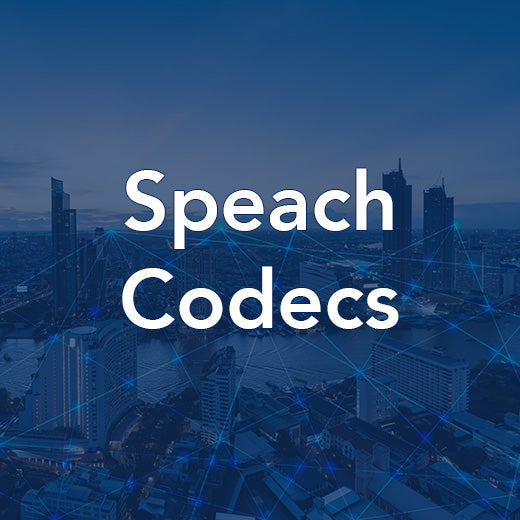
Speech Codecs
This course looks at different types of voice coder used in GSM and UMTS networks and then investigates its basic operation looking at CELP and VSELP. The course progresses to look at the functionality of the AMR voice codec and suggest its benefits and looks at Source Controlled Rate (SCR) operation finishes by looking at lost frame substitution. Our Speech Codecs Training Course delves into the world of voice coding in GSM and UMTS networks, exploring the basic operations of CELP and VSELP voice coders. Participants will gain an understanding of the AMR voice codec, its benefits, and Source Controlled Rate (SCR) operation, as well as lost frame substitution. This course is designed for individuals seeking to optimize voice performance in modern telecommunication networks through the use of different speech codecs. Ideal for those with an interest in mobile networks, this course requires no prerequisites and is suitable for anyone looking to enhance their knowledge of key voice coders used in telecommunications. Our expert instructors will guide participants through topics such as Linear Predictive Coders (LPCs), the GSM Vocoder, RPE, and the subjective division of codec parameters. By the end of this course, attendees will have a comprehensive understanding of voice coding technologies and their impact on network voice quality. Join usto expand your knowledge of speech codecs and their role in optimizing voice transmission in telecommunication networks. Gain valuable insights into the functionality of different voice coders, their benefits, and the operation of Source Controlled Rate (SCR) and lost frame substitution. Don't miss this opportunity to enhance your skills and stay ahead in the ever-evolving world of telecommunications. Who would benefit Attendees of this course should require an understanding of the key voice coders used in modern telecommunication networks, as well as their development and operation. This course will be of particular relevance to those interested in the performance of different speech codecs for optimising voice through the network. Prerequisites Delegates should have experience or an interest in mobile networks otherwise there are no prerequisites for this course. Topic Areas Include Voice Coding Linear Predictive Coders (LPCs) The GSM Vocoder Vocoder Action RPE Vocoder Output GSM Coder and Decoder Subjective Division of Codec Parameters Categorization The GSM Half-Rate Speech Coder Code Excited Linear Predictor (CELP) GSM Enhanced Full Rate Speech Coder Adaptive Multi-Rate (AMR) Voice Codec General Description Source Controlled Rate (SCR) Operation Lost Frame Substitution
POA: Private Course
-
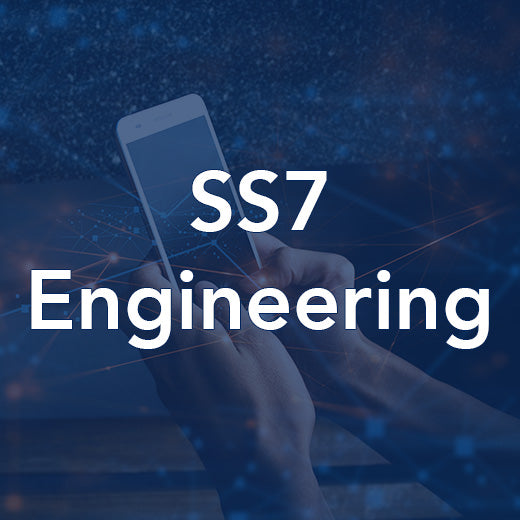
SS7 Engineering
Course Code: QS2500 Course Summary SS7 is a key element in the control plane of fixed and mobile networks and in Intelligent Network scenarios. It facilitates communication between SS7 hosted ‘applications’ enabling end-to-end service delivery. This course provides a comprehensive description of SS7 protocols, functions and procedures. Who would benefit Those who need a detailed understanding of the implementation and functions of SS7. Prerequisites An understanding of the PSTN architecture and circuit- and packet-switched concepts, together with a working knowledge of the OSI Model and primary rate (E1/T1) bearers. Topic Areas Include Overview of signalling and signalling system SS7 architecture: SP, STPs, Links, Link Sets, Routes and Route Sets Point Codes functions and formats Message Transfer Part (MTP) levels 1, 2 and 3 MTP error control, routing and loadsharing principles and user identification The ISDN User Part call control and supplementary services Signalling Connection Control Part (SCCP) functions and services SCCP connectionless and connection-oriented services applications SCCP Global Title routing and segmentation function Transaction Capabilities (TCAP) protocol stack and usage scenarios TCAP Component Sublayer and Transaction Sublayer Component-handling and transaction-handling functions and procedures The Dialogue Portion and application context negotiation SS7 applications in Intelligent Networks and Mobile Networks Introduction to SS7 over IP Includes practical exercises analysing MTP, SCCP, ISUP and TCAP signalling traces.
POA: Private Course
-
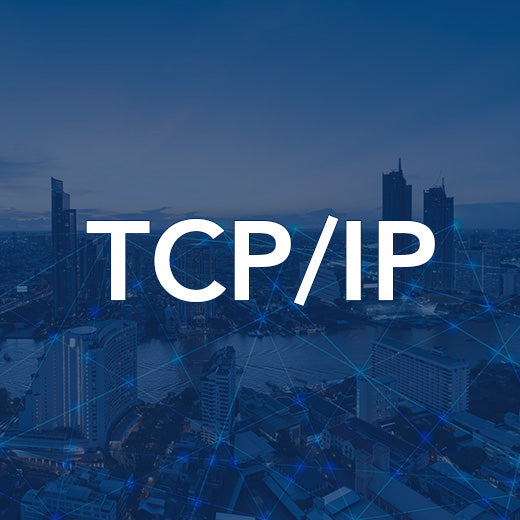
TCP/IP
Course Code: QS2501 Course Summary Knowledge of TCP/IP and its operation has become a fundamental requirement for anyone involved in IP networks. This detailed and exciting course takes delegates through TCP/IP principles, applications and protocols, enabling them to work confidently in this changing environment. Who would benefit This course is aimed at engineers who are looking to get started in TCP/IP family of protocols. The course is designed to provide engineers with a foundation into the world of IP and Ethernet in particular, although other major protocols such as MPLS will also be discussed. Prerequisites Some prior knowledge of packet-switched network operations and the Internet is beneficial, but the ability to comprehend technical matters and an interest in Internet protocols is sufficient. Topic Areas Include The Internet TCP/IP features Ethernet Spanning Tree Point-to-Point Protocol (PPP) Multi Protocol Label Switching (MPLS) Internet Protocol (IP) IP version 6 Address Resolution Protocol (ARP) Interior Gateway Protocols (IGP) Internet Control Messaging Protocol (ICMP) User Datagram Protocol (UDP) Transmission Control Protocol (TCP) Dynamic Host Configuration Protocol (DHCP) Domain Name System (DNS) Remote Authentication Dial In User Service (RADIUS)
POA: Private Course
-
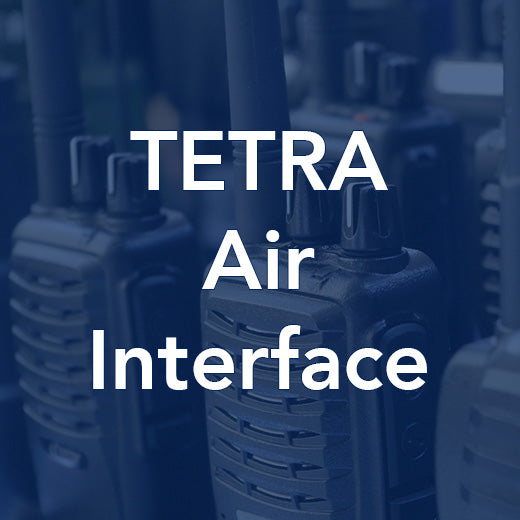
TETRA Air Interface
The TETRA Air Interface course offered by Wray Castle provides a comprehensive overview of the radio link between a TETRA mobile and base station. Covering V+D and Release 2 in detail, participants will gain a deep understanding of higher-layer signalling, protocol interactions, media processing, modulation, radio performance, and channel coding. This course is ideal for individuals working in PMR or PAMR who require a detailed knowledge of the TETRA air interface. Participants in this course will benefit from learning about TETRA identities, bearer services, teleservices, and supplementary services, as well as the TETRA air interface protocol stack, frequency allocation, channels, modulation schemes, MAC layer, LLC layer, SS and SDS protocols, MM protocol, authentication, ciphering, and Direct Mode Operation (DMO). By the end participants will have a strong foundation in TETRA air interface principles and protocols. For those looking to expand their knowledge of TETRA technology and enhance their skills in the field, the TETRA Air Interface course is a valuable opportunity. With a focus on practical applications and real-world scenarios, this course is designed to equip participants with the knowledge and expertise needed to excel in the PMR and PAMR industries. Who would benefit Those working or involved in PMR or PAMR requiring a detailed understanding of the TETRA air interface. Prerequisites Familiarity with the architecture and general operation of a TETRA network, or previous attendance on the TETRA System Overview course (TR1302). Topic Areas Include TETRA identities TETRA bearer services, teleservices and supplementary services TETRA air interface protocol stack TETRA frequency allocation TETRA channels TETRA modulation schemes - inc. π/4DQPSK and QAM Medium Access Control (MAC) layer Logical Link Control (LLC) layer Supplementary Service (SS) and Short Data Service (SDS) protocols TETRA Mobility Management (MM) protocol Authentication and ciphering TETRA Direct Mode Operation (DMO)
POA: Private Course
-
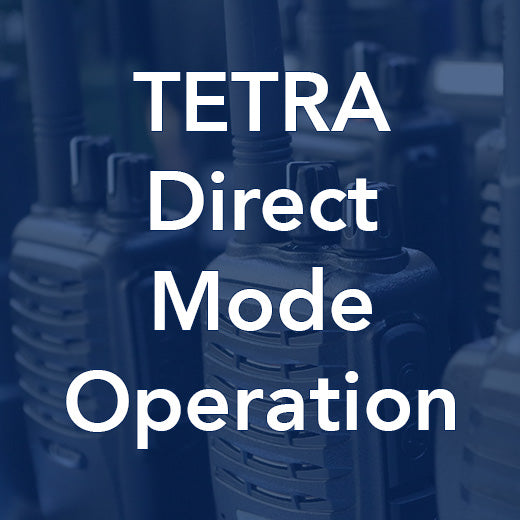
TETRA Direct Mode Operation
The TETRA Direct Mode Operation course offered by Wray Castle is designed for individuals working in TETRA systems administration, design, and specification. This course covers a range of topics that will enable participants to effectively plan and configure TETRA Direct Mode. Engineers involved in mobile radio system management and design will benefit from gaining a detailed understanding of the planning, optimization, and configuration aspects of TETRA Direct Mode Operation. Participants in this course will delve into various topic areas including an introduction to TETRA DMO, DMO air interface structure, advantages and disadvantages of DMO, DMO services, frequency-efficient operation, dual watch mobiles, dual-mode mobiles, DMO repeaters, DMO gateways, DMO gateway repeaters, radio coverage and co-existence issues, managed DMO, and DMO security. The course also includes a DMO 'coverage' design exercise to provide practical experience in applying the concepts learned. By completing the TETRA Direct Mode Operation course, participants will enhance their skills and knowledge in managing and designing mobile radio systems, ultimately improving their ability to effectively plan and configure TETRA Direct Mode for optimal performance. This course is ideal for individuals with familiarity with mobile radio system design principles or those who have attended the Radio System Design course previously. Who would benefit Engineers working or involved in mobile radio system management and design who require a detailed understanding of the planning, optimisation and configuration aspects of TETRA Direct Mode Operation. Prerequisites Familiarity with the principles and techniques of designing mobile radio systems, or previous attendance on the Radio System Design course (RP1101). Topic Areas Include Introduction to TETRA DMO DMO air interface structure Advantages and disadvantages of DMO DMO services Frequency efficient operation Dual watch mobiles Dual mode mobiles DMO repeaters DMO gateways DMO gateway repeaters Radio coverage and co-existence issues Managed DMO DMO security Includes a DMO 'coverage' design exercise.
POA: Private Course
-
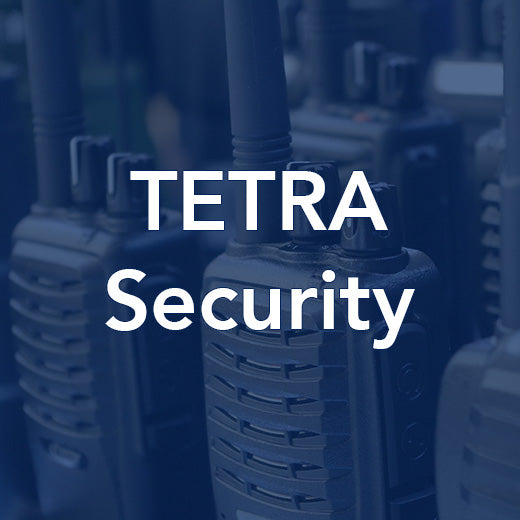
TETRA Security
This course provides TETRA design, specification and system engineers with the necessary information and skills required to plan and configure the security services available on TETRA networks. Our TETRA Security course is designed for TETRA design, specification, and system engineers looking to enhance their knowledge and skills in planning and configuring security services on TETRA networks. This 1-day provides a comprehensive overview of TETRA security fundamentals, classes, capabilities, attack vectors, authentication, confidentiality mechanisms, algorithms, and more. Engineers and system administrators involved in secure system design for TETRA systems will benefit greatly from this course. Participants are required to have a good understanding of TETRA radio system capabilities and target markets to fully engage with the material covered. By the end of the course, attendees will have a solid grasp of TETRA security protocols, OTAR (Over The Air Rekeying) protocols, end-to-end security, privacy protection, and the legal framework surrounding TETRA security. Join us for this informative and practical TETRA Security course to expand your expertise and ensure the security of TETRA networks in your organization. Who would benefit Engineers and system administrators working or involved in secure system design for TETRA systems. Prerequisites Good understanding of TETRA radio system capabilities and target markets. Topic Areas Include Security fundamentals TETRA security classes DMO and V+D capabilities Integration of TETRA security to TETRA V+D and DMO capabilities TETRA attack vectors TETRA authentication TETRA confidentiality mechanisms Algorithms Initialization and maintenance of secured path OTAR protocols OTAR algorithms End-to-end security Privacy protection Legal framework
POA: Private Course
-
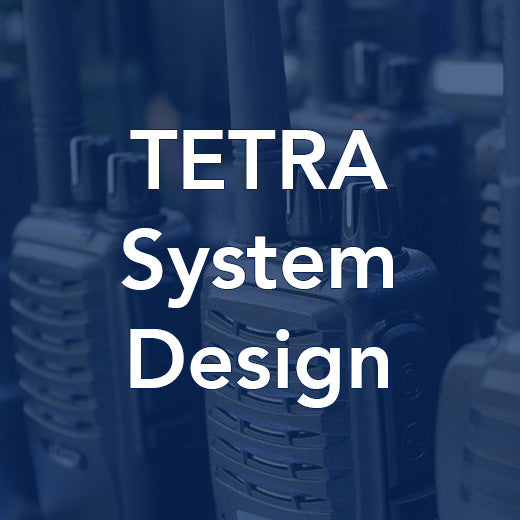
TETRA System Design
The TETRA System Design course is designed to provide engineers with the knowledge and skills needed to plan and configure TETRA networks effectively. Topics covered in the course include TETRA air interface structure, modulation and channel coding performance, receiver sensitivity, power control mechanisms, network broadcast channels, cell surveillance, and more. Participants will also engage in a TETRA system coverage and capacity design exercise to apply their learning in a practical setting. Ideal for engineers involved in radio system design, this course is suitable for those looking to gain a detailed understanding of planning, optimization, and configuration aspects of TETRA systems. Who would benefit Engineers working or involved in radio system design who require a detailed understanding of the planning, optimisation and configuration aspects of TETRA systems. Prerequisites Familiarity with the principles and techniques of designing a mobile radio system, or previous attendance on the Radio System Design course (RP1101). Topic Areas Include TETRA air interface structure – sub-slots, time slots and bursts TETRA modulation and channel coding performance Static and dynamic receiver sensitivity Dynamic channel adaptation Adaptive power control mechanisms and procedures Synchronisation and network broadcast channels Radio usable, radio relinquishable and radio improvable Random access procedures Cell surveillance, monitoring and scanning Undeclared, unannounced and announced cell reselection C1, C2, C3, C4 and C5 calculations Concentric, conforming and non-conforming carriers Normal, extended and shared control Capacity planning – circuit switched, packet switched, and control Fleet mapping Message, transmission and quasi-transmission trunking Carrier sharing options Configuring TETRA timers and energy economy mode Planning TETRA radio coverage Includes a TETRA system coverage and capacity design exercise.
POA: Private Course
-
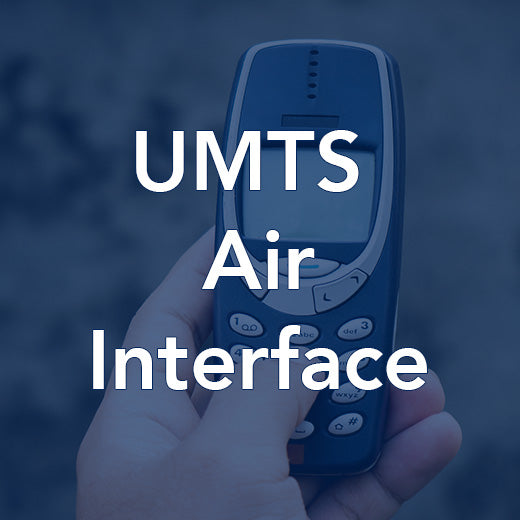
UMTS Air Interface
The UMTS Air Interface course offered by Wray Castle provides a comprehensive technical overview of the structure and operation of the UMTS air interface protocol stack. Ideal for individuals requiring a deep understanding of the UMTS air interface protocol stack from layers 1 to 3, this course covers a wide range of topic areas including the aims of a UMTS network, principles of spread spectrum technology, CDMA, UTRAN protocols, power control, layer 2 and layer 3 protocols, handover scenarios, security, and more. Participants are expected to have some prior knowledge of the UMTS network and its operation, or have attended the UMTS System Overview course (MB350) to fully benefit from this technical course. By enrolling in the UMTS Air Interface course at Wray Castle, participants can gain valuable insights and expertise in UMTS technology, enabling them to stay ahead in the rapidly evolving telecommunications industry. Don't miss this opportunity to expand your knowledge and enhance your skills in UMTS air interface protocols. Who would benefit Those requiring a comprehensive technical overview of the structure and operation of the UMTS air interface protocol stack from layers 1 to 3. Prerequisites This course is technical in nature and assumes some knowledge of the UMTS network and its operation, or previous attendance on the UMTS System Overview course (MB350). Topic Areas Include Aims of a UMTS network Principles of spread spectrum technology Principles of CDMA and the use of codes UMTS air interface protocol structure Overview of UTRAN protocols Functions of Layer 1 Analysis of physical channels Power control Layer 2 protocols – RLC, MAC and PDCP Layer 3 protocol – RRC Synchronization and idle mode activities Network access and radio network identities Connected mode activities Handover scenarios Transmit diversity Security and error protection
POA: Private Course
-
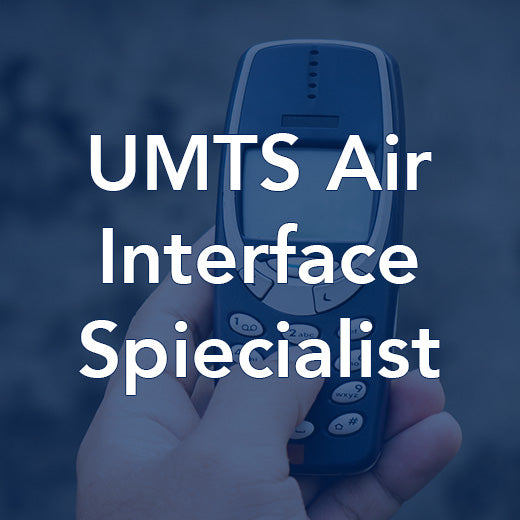
UMTS Air Interface Specialist Workshop
Join our UMTS Air Interface Specialist Workshop to deepen your understanding of the UMTS air interface environment. This course, with the course code MB1301, is designed for senior technical personnel involved in planning, designing, or supporting UMTS air interface systems. Whether you are looking to enhance your knowledge of the CDMA receiver, CDMA code functions, physical layer functions, or High Speed Packet Access (HSPA), this workshop will equip you with the necessary skills to excel in your role. By attending this workshop, you will gain valuable insights and practical knowledge that will benefit your work in the UMTS air interface environment. Don't miss this opportunity to expand your expertise and take your career to the next level. Prerequisites Attendance on this course assumes previous attendance on the UMTS Air Interface Live-on-Web course or equivalent knowledge. Contents The CDMA Receiver CDMA Code Functions Physical Layer Functions High Speed Packet Access (HSPA)
POA: Private Course
-
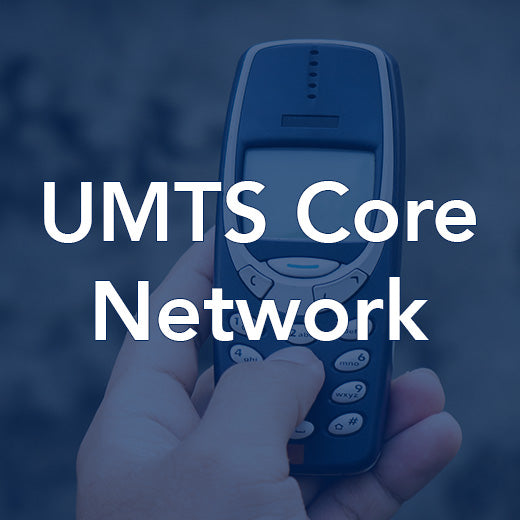
UMTS Core Network
This course provides a clear and logically organized tour of the 3GPP UMTS circuit-switched and packet-switched core network domains. The course describes the operation of the main core network protocols and outlines the evolutionary path towards an all IP based network. The functions of the various interfaces are explained including those towards the Evolved Packet Core (EPC). References are made to the latest releases of 3GPP specifications throughout the course. The UMTS Core Network course offered by Wray Castle is designed to provide a comprehensive understanding of UMTS core network architecture, interfaces, protocols, and operation. This course covers both the circuit-switched and packet-switched core network domains, explaining the main core network protocols and outlining the evolution towards an all IP-based network. Participants will learn about the functions of various interfaces, including those towards the Evolved Packet Core (EPC), and references are made to the latest releases of 3GPP specifications throughout the course. Ideal for those in the telecommunications industry or related fields, this course is beneficial for individuals seeking to enhance their knowledge of UMTS core network functionalities. Participants will gain insights into topics such as UMTS core network architectures, ATM, RANAP, Iu protocol, mobility management, interworking with 2G, 4G, and WLAN, multimedia messaging services, security functions, charging, and the evolution to the Evolved Packet Core (EPC). Familiarity with UMTS network architecture and basic knowledge of IP and OSI seven-layer model will be advantageous for participants looking to make the most of this course. Who would benefit Those requiring a comprehensive understanding of UMTS core network architecture, interfaces, protocols and operation, including the Release 4 circuit switched core network, the packet switched core network, associated functions such as security, charging, signalling protocols and location based services. Prerequisites Familiarity with the architecture and general operation of a UMTS network is beneficial. Some knowledge of IP and the OSI seven-layer model will also be advantageous. Topic Areas Include UMTS core network architectures Asynchronous Transfer Mode (ATM) RANAP Iu protocol Circuit-switched core network procedures Packet-switched core network functionality Mobility management Interworking with 2G, 4G and WLAN Multimedia Messaging Service (MMS) IN and CAMEL Location Services (LCS) Security functions Charging Evolution to the Evolved Packet Core (EPC)
POA: Private Course
-
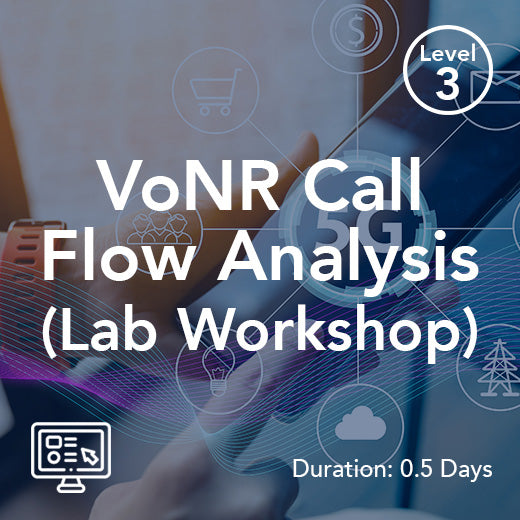
VoNR Call Flow Analysis (Lab Workshop)
Develop a deep understanding VoNR Call Flow and understand its role in the 5G Standalone Network with this 1/2-day Lab. The cloud-based lab provides participants with access to a fully emulated 5G System environment. Experiment with the configurations for various Network Functions within the 5G Core Network and build customized settings for signalling scenarios that will enable users to develop greater insight in to the operation of the 5G System. VoNR Call Flow Analysis Covering Voice over New Radio in a 5G SA network, it includes message flows for: Registration PDU session setup IMS and SIP signalling for VoNR Lab Features & Benefits Through a combination of hands-on experience and guided instruction our virtual labs allow users to explore signalling procedures in the 5G system. Our labs feature: A simulated 5G network - Provides hands-on experience and reinforces theoretical knowledge. Guided exercises for signalling scenarios - makes learning and applying new concepts straightforward. Wireshark (pcap) output files – detailed output files provide deep system insight. Cloud-based lab - available 24/7 on any connected device. Individual dedicate server - Ensures that your work is kept private and secure. Ongoing trainer support - ensures you get expert advice when needed. Full integration with Wray Castles training programmes - allows you to build bespoke learning pathways for specialist teams across your organisation. You can find more information on our labs and arranges a demo here.
POA: Private Course
-

Wi-Fi and Cellular Convergence
Wi-Fi and cellular convergence is a crucial aspect of modern communication networks, allowing seamless integration between Wi-Fi and cellular technologies. This course, with the course code WR1401, provides a comprehensive overview of the 802.11 family of wireless LAN technologies, commonly known as Wi-Fi. Participants will gain insights into the different forms of Wi-Fi in use, as well as a detailed understanding of the structure, operation, and functionality of Wi-Fi connections. Moreover, the course delves into the integration of Wi-Fi access into cellular provider portfolios and explores techniques for interworking between different access environments. This training is ideal for communications professionals involved in Wi-Fi network design and administration, as well as those responsible for deploying and maintaining Wi-Fi systems. Participants should ideally have a basic understanding of cellular networks and a keen interest in learning about Wi-Fi technologies. By the end of the course, attendees will have a solid grasp of wireless LAN technologies and standards, the protocol stack layers, Wi-Fi security, deployment, and integration strategies. In just 1 day and 2 live online sessions from 0900 to 1230, participants can enhance their knowledge and skills in Wi-Fi and cellular convergence. Don't miss this opportunity to stay ahead in the ever-evolving world of wireless communication technologies. Course Summary This course presents an overview of the 802.11 family of wireless LAN technologies that are more commonly known as Wi-Fi. The course introduces the various forms of Wi-Fi currently in use and looks in detail at the structure, operation and functionality of Wi-Fi connections. It then examines issues related to the integration of Wi-Fi access into cellular provider’s portfolios and techniques that allow interworking between the access environments. Who would benefit This course is suitable for communications professionals involved in Wi-Fi network design and administration, and also those involved in deploying and maintaining Wi-Fi based systems. Prerequisites Delegates should ideally have an understanding of cellular networks and a keen interest in understanding Wi-Fi technologies. Topic Areas Include Wireless LAN Technologies and Standards The Protocol Stack Layer 1 The Protocol Stack Layer 2 Wi-Fi Security Wi-Fi Deployment and Integration
POA: Private Course












































